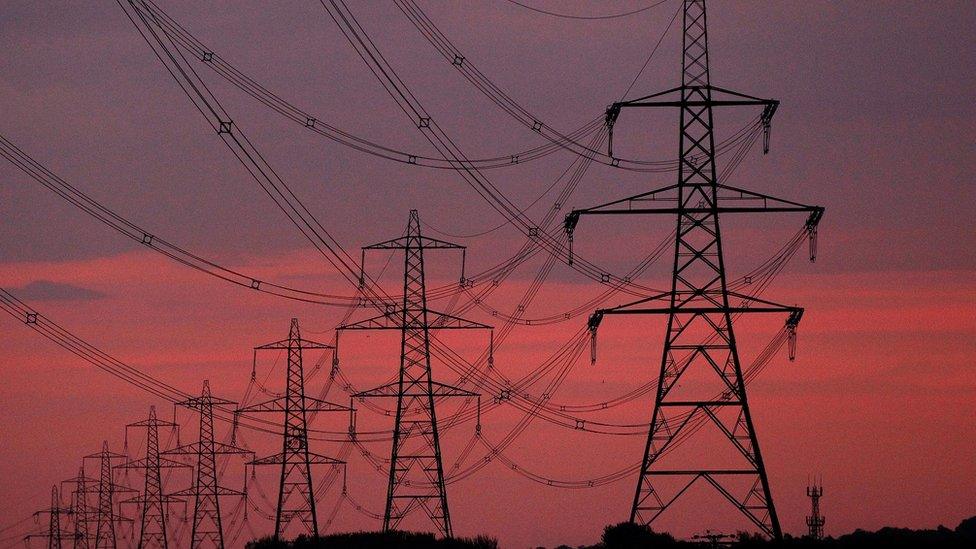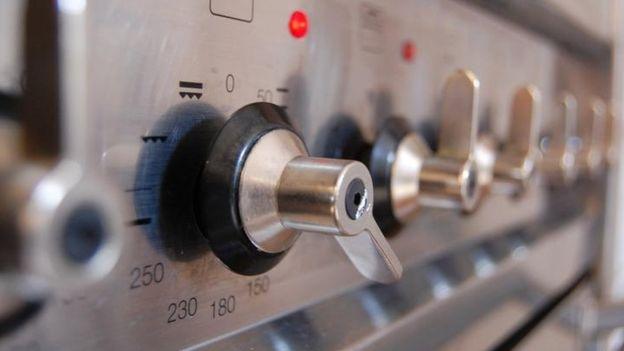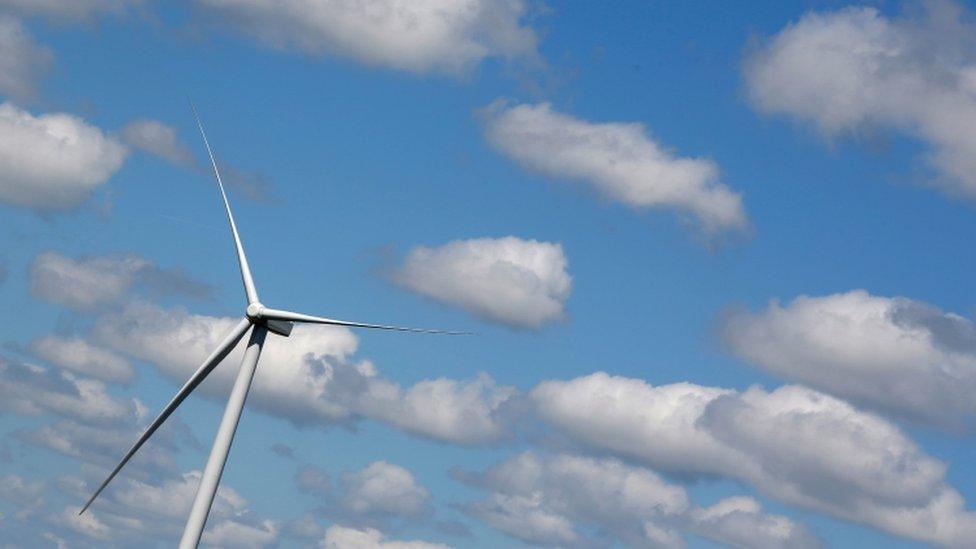Power NI's 5% electricity price cut 'too little too late'
- Published
- comments

A business group has criticised the decision by Power NI to cut its electricity prices by less than 5%.
The company is Northern Ireland's biggest electricity supplier.
It said the price cut would save the typical household customer £30 a year. But the Federation of Small Businesses (FSB) said the move was "far too little, far too late".
Roger Pollen, head of external affairs at the FSB in Northern Ireland, said the cut was "deeply disappointing".
"The price cut is less than 5%, despite the wholesale price of oil having fallen by more than 10 times that amount in the past year," he said.
"The reduction is also not going to take effect until the month after next, meaning that higher prices will have persisted throughout the very worst of the economic lockdown.
"And this announcement is for domestic customers only, with no guarantee that there will be a reduction for business customers."
Power NI said the price cut would mean customers "paying significantly less than households in the Republic of Ireland, GB and across Europe".

In response to the concerns about business customers, managing director Stephen McCully said: "The overwhelming majority of our SME customers [small and medium-sized enterprises] are actually already benefitting from the reduction in wholesale costs as these savings are being passed on to them directly as they are on tracker rate contracts with us.
"This means that any savings are passed on to them immediately."
'Exceptional fall in demand'
The utility regulator said increased network costs had offset some of the fall in the price of wholesale energy.
Network costs are the cost of transporting the electricity across both the transmission network and the local distribution network.
The regulator, Jenny Pyper, said these costs had been impacted by an overall fall in demand for electricity since the start of the crisis.
"This means network costs, which are largely fixed, are collected over fewer units which increases the per unit cost," she said.
"The bottom line is that the exceptional fall in demand for electricity because of the Covid-19 pandemic has pushed up network costs which has offset the positive impact of falling wholesale costs."

LOCKDOWN UPDATE: What's changing, where?
SCHOOLS: When will children be returning?
EXERCISE: What are the guidelines on getting out?
THE R NUMBER: What it means and why it matters
AIR TRAVELLERS: The new quarantine rules
LOOK-UP TOOL: How many cases in your area?
GLOBAL SPREAD: Tracking the pandemic
RECOVERY: How long does it take to get better?
A SIMPLE GUIDE: What are the symptoms?

- Published15 August 2019

- Published14 August 2019
